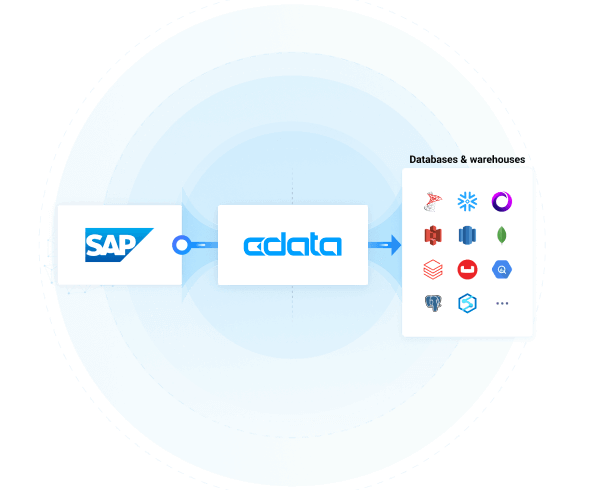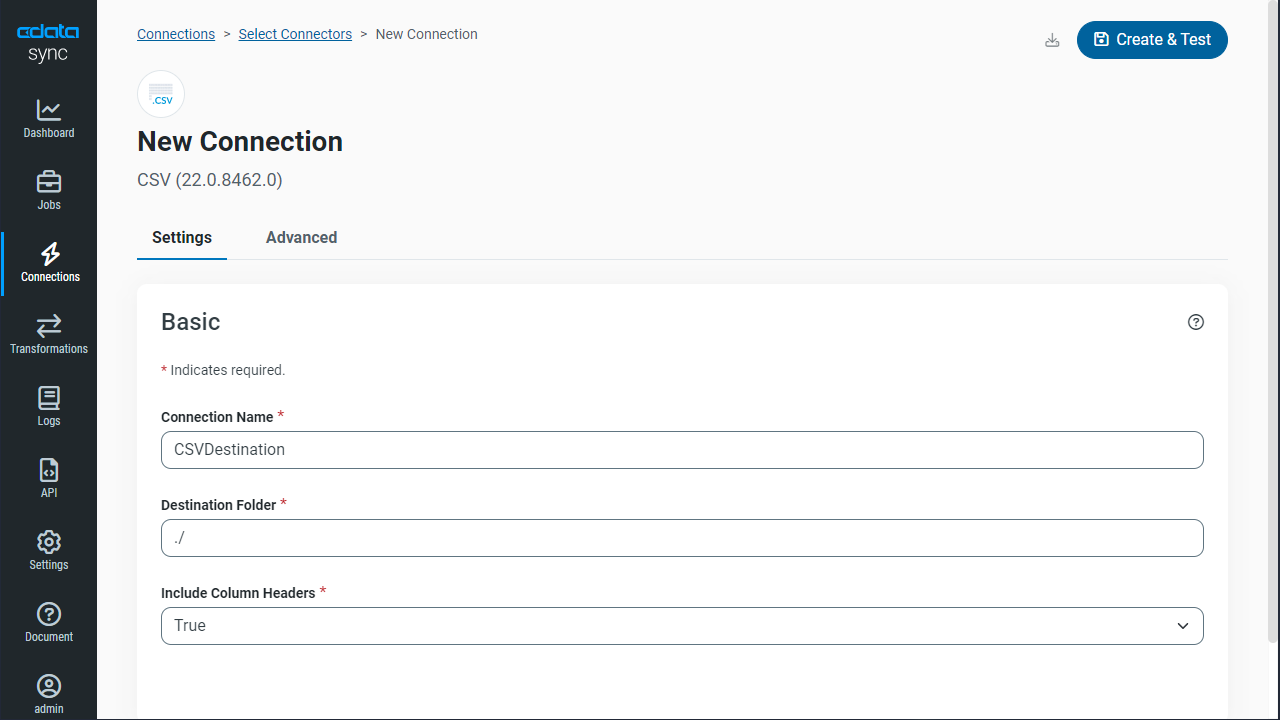Discover how a bimodal integration strategy can address the major data management challenges facing your organization today.
Get the Report →Automated Continuous Smartsheet Replication to Local Delimited Files
Use CData Sync for automated, continuous, customizable Smartsheet replication to delimited files (CSV/TSV).
Always-on applications rely on automatic failover capabilities and real-time data access. CData Sync integrates live Smartsheet data into local delimited files (CSV/TSV), allowing you to consolidate all of your data into a single location for archiving, reporting, analytics, machine learning, artificial intelligence and more.
About Smartsheet Data Integration
CData provides the easiest way to access and integrate live data from Smartsheet. Customers use CData connectivity to:
- Read and write attachments, columns, comments and discussions.
- View the data in individuals cells, report on cell history, and more.
- Perform Smartsheet-specific actions like deleting or downloading attachments, creating, copying, deleting, or moving sheets, and moving or copying rows to another sheet.
Users frequently integrate Smartsheet with analytics tools such as Tableau, Crystal Reports, and Excel. Others leverage our tools to replicate Smartsheet data to databases or data warehouses.
Getting Started
Configure CSV/TSV as a Replication Destination
Using CData Sync, you can replicate Smartsheet data to delimited files, like CSV or TSV. To add a replication destination, navigate to the Connections tab.
- Click Add Connection.
- Select CSV as a destination.
![Configure a Destination connection to CSV.]()
- Enter the necessary connection properties. To connect to a directory for storing delimited files, set the following:
- Destination Folder: Set this location on the disk for the delimited files.
- Include Column Headers: Set this to True for the first row in each file to represent the column names.
- Click Test Connection to ensure that the connection is configured properly.
![Configure a Destination connection.]()
- Click Save Changes.
Configure the Smartsheet Connection
You can configure a connection to Smartsheet from the Connections tab. To add a connection to your Smartsheet account, navigate to the Connections tab.
- Click Add Connection.
- Select a source (Smartsheet).
- Configure the connection properties.
Smartsheet uses the OAuth authentication standard. To authenticate using OAuth, you will need to register an app to obtain the OAuthClientId, OAuthClientSecret, and CallbackURL connection properties.
However, for testing purposes you can instead use the Personal Access Token you get when you create an application; set this to the OAuthAccessToken connection property.
![Configure a Source connection (Salesforce is shown).]()
- Click Connect to ensure that the connection is configured properly.
- Click Save Changes.
Configure Replication Queries
CData Sync enables you to control replication with a point-and-click interface and with SQL queries. For each replication you wish to configure, navigate to the Jobs tab and click Add Job. Select the Source and Destination for your replication.
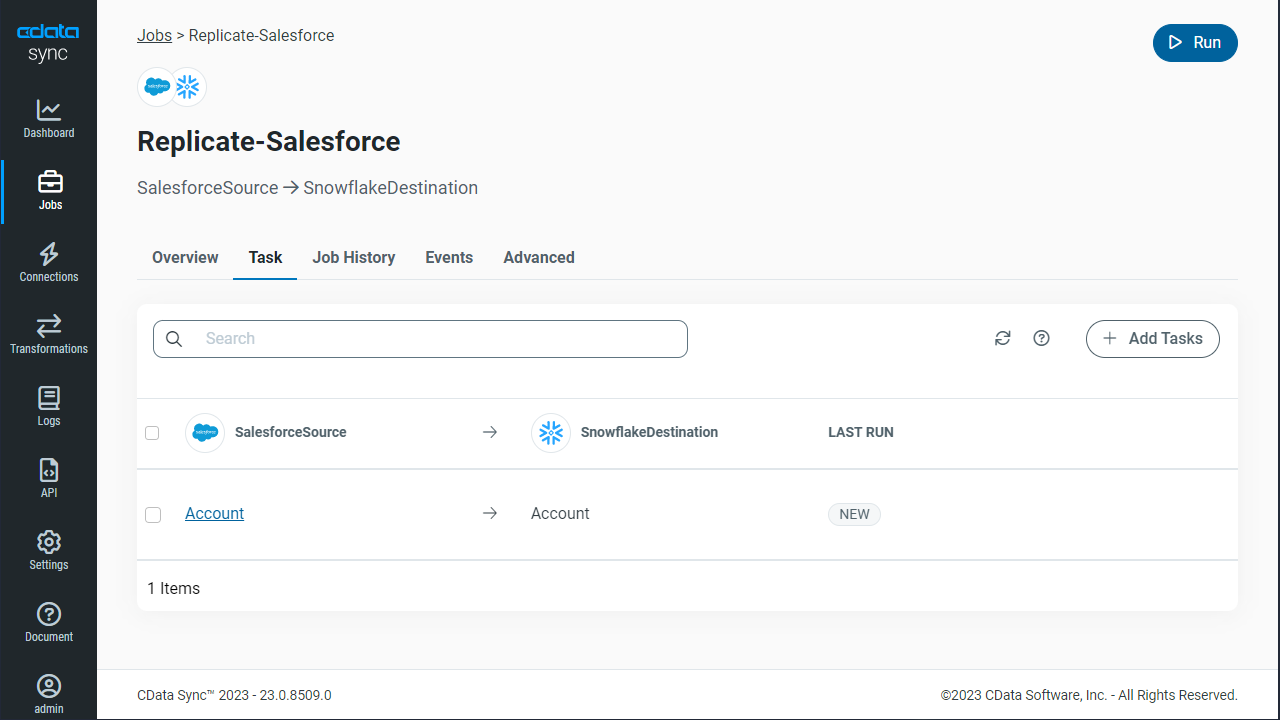
Replicate Entire Tables
To replicate an entire table, click Add Tables in the Tables section, choose the table(s) you wish to replicate, and click Add Selected Tables.
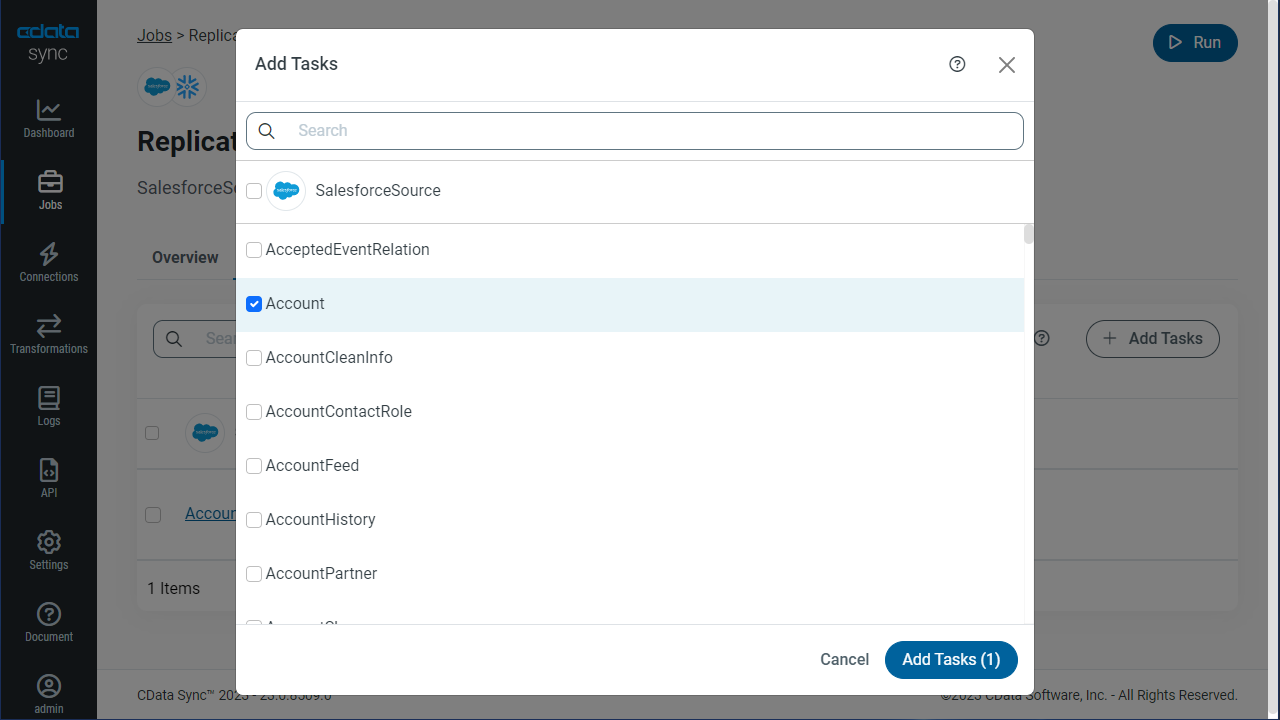
Customize Your Replication
You can use the Columns and Query tabs of a task to customize your replication. The Columns tab allows you to specify which columns to replicate, rename the columns at the destination, and even perform operations on the source data before replicating. The Query tab allows you to add filters, grouping, and sorting to the replication.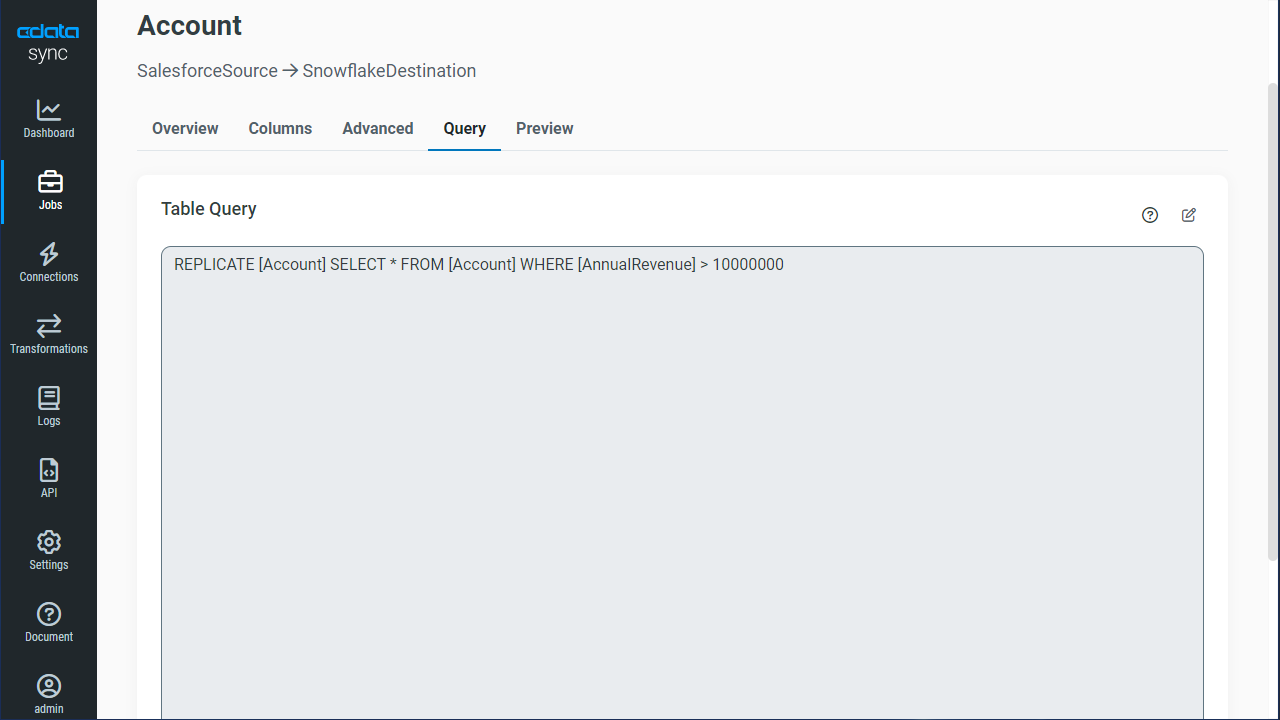
Schedule Your Replication
In the Schedule section, you can schedule a job to run automatically, configuring the job to run after specified intervals ranging from once every 10 minutes to once every month.
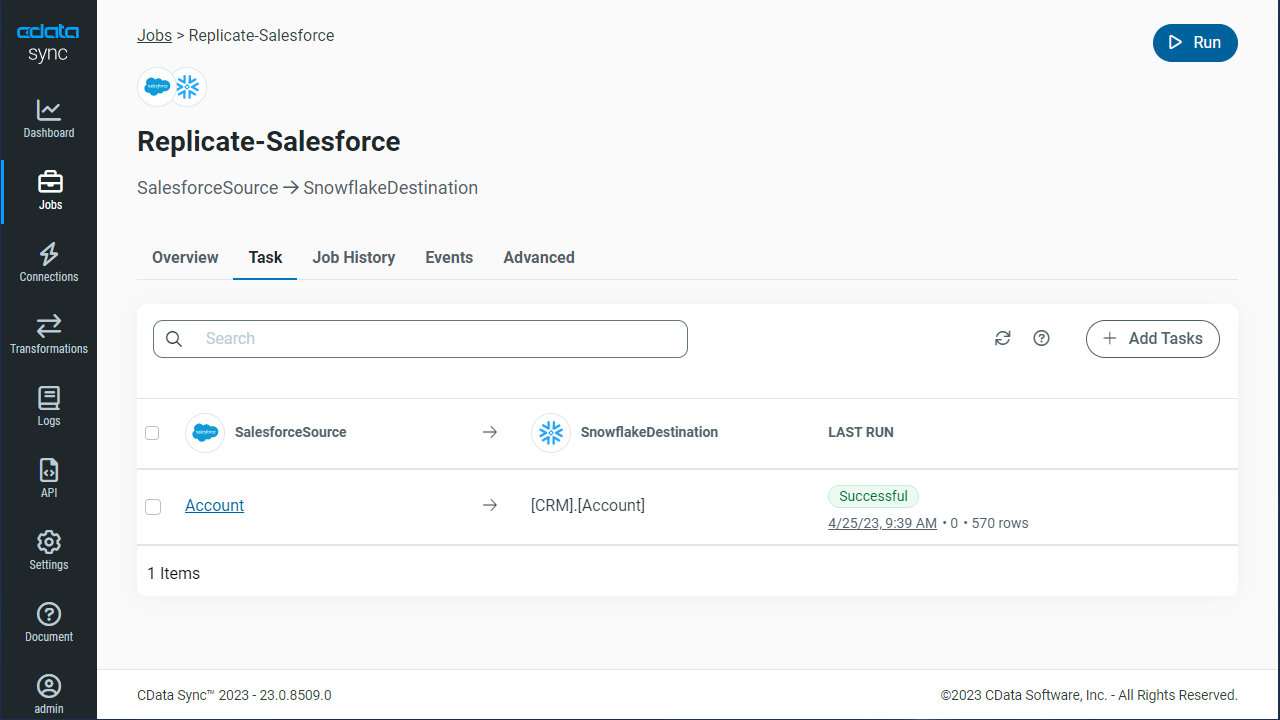
Once you have configured the replication job, click Save Changes. You can configure any number of jobs to manage the replication of your Smartsheet data to delimited files.


